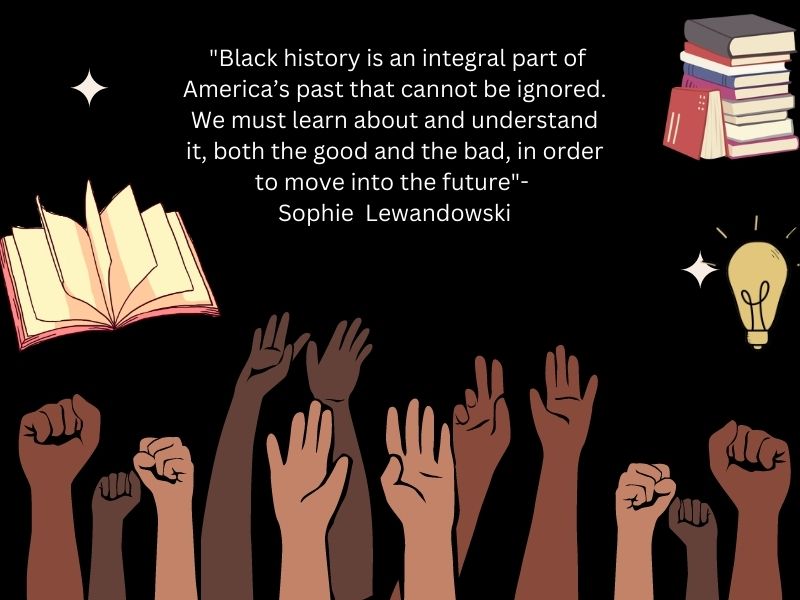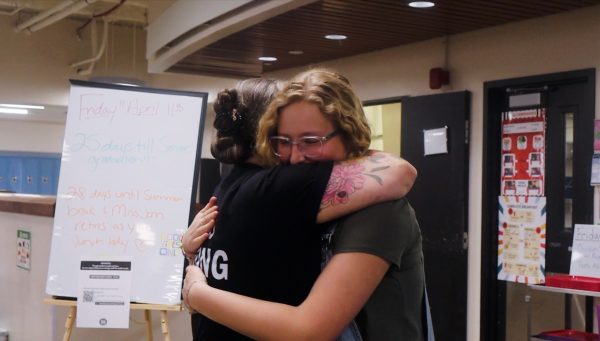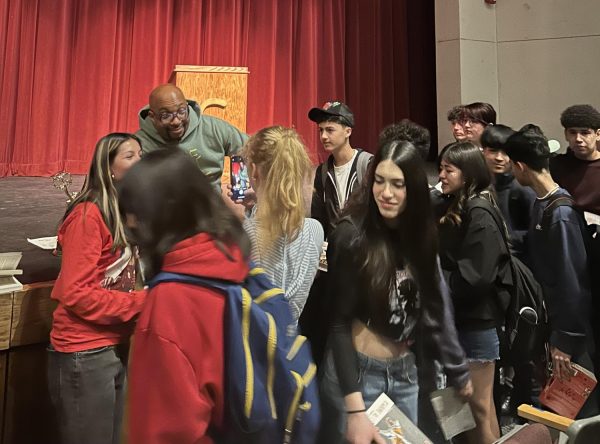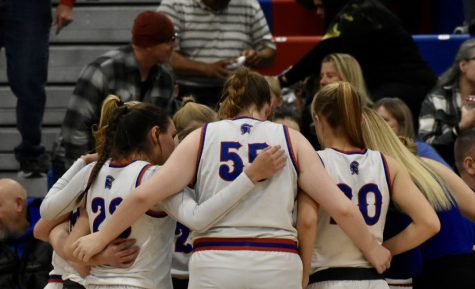How Do We Learn About Black History?
“We must never forget that Black History is American History. The achievements of African Americans have contributed to our nation’s greatness.”
– Yvette Clark
Debates over what parts of Black history are taught in schools have long existed and continue to this day. Education of African American history in our schools only became more prominent in the 1960s after Black community members pushed for teachers to teach it. This movement also called for legislation mandating that Black history be a part of the curriculum.
Today, though, debates over what should be taught in schools continue to circulate. Many states, including Tennessee, Texas, and South Carolina, have even passed legislation that prohibits topics of race and racism from being discussed in schools.
It is incredibly important to make sure all points of view are discussed when we are talking about history. Here is how a few teachers at Centaurus are doing just that:
Mrs. Senseney teaches U.S. History, so Black history is a big part of her class. “In class, it’s just an ongoing journey in terms of African Americans historically throughout time,” she remarked.
February is Black History Month, and for Mrs. Senseney, it is a time to celebrate the achievements of African-Americans. “One thing that’s hard for me as a teacher is sometimes I feel like a lot of the Black history is so sad,” said Mrs. Senseny. “And I want to remind kids that there’s a lot of things that are not sad, and I don’t want to just teach the sad moments.”
Mrs. Senseney’s goal during Black History Month is to remind her students of all of the amazing moments in Black history.
Mrs. Dailey is also a U.S. History teacher. She begins the school year by talking about the Civil War and the roots of racism in America. Mrs. Dailey focuses on opportunities for African Americans during the United States’ reconstruction after the war. She also looks at what allowed for racism to continue and what kept America from being a fair democracy with diverse voices.
As the year goes on, African American history remains very relevant in her class. This month, Mrs. Dailey’s class is talking about the Civil Rights Movement. “We’re really focused on what are the two Americas at the time,” she explained. “The America for the white middle and upper class and then the America for people of color.”
Mrs. Dailey focuses on understanding the racial divide that has existed in America since its founding and understanding how racism continues to exist to this day.
Additionally, Mrs. Lowe teaches psychology and U.S. History. She tries to incorporate Black history into each of her units. “I like to think that I teach Black History Month every month,” she commented. Mrs. Lowe wants her students to understand that African American history is at the core of American history, making a point to weave a variety of voices into every lesson. “Anybody who’s in a marginalized group should have their story told all year long.”
In the end, Mrs. Lowe expressed the importance of learning multiple sides of history. “I think we need to do more of this rather than less in any school curriculum,” she said.
It is important to discuss all aspects of history and understand how different people’s stories fit together. Every voice makes a difference in the world.
Centaurus’s history teachers are working hard to teach the full story. Black history is an integral part of America’s past that cannot be ignored. We must learn about and understand it, both the good and the bad, in order to move into the future.
Sources:
https://www.nytimes.com/2022/01/31/learning/how-much-have-you-learned-about-black-history.html
https://www.edweek.org/teaching-learning/opinion-black-history-is-about-more-than-oppression/2021/01
Your donation will support the student journalists of Centaurus High School. Your contribution will allow us to purchase equipment and cover our annual website hosting costs.

Sophie Lewandowski (she/her) is Co-Editor-in-Chief, as well as a reporter for The Warrior Scroll. She is a junior at Centaurus. In her freetime, she loves...
Mallorie Solem (she/her) is a senior at Centaurus, and this will be her third year on the Warrior Scroll staff. She helped with social media her first...














